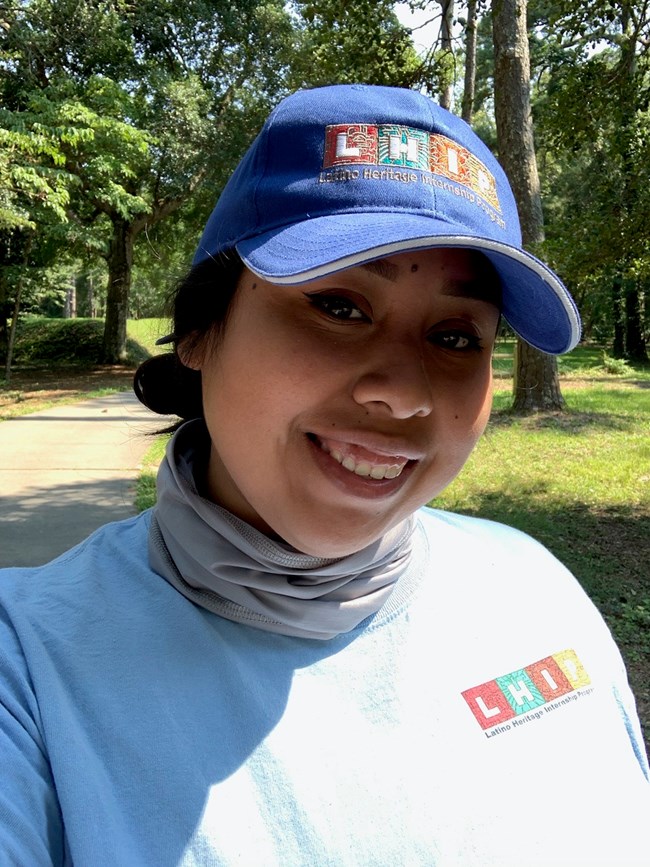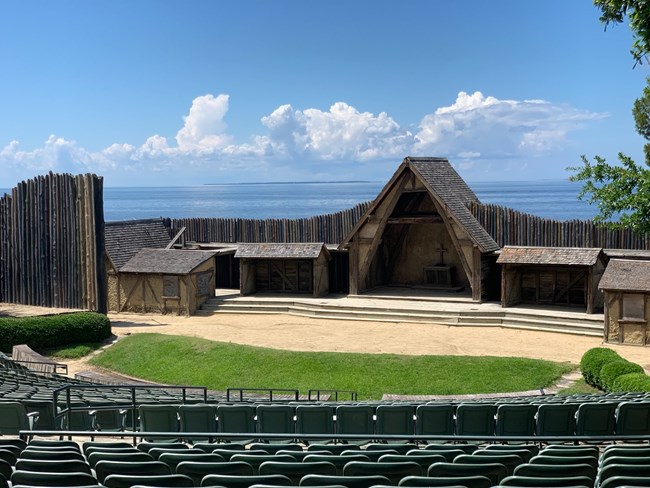Last updated: August 27, 2020
Article
Mayra Ramos, Interpretation and Virtual Engagement Intern

NPS
What is your name and job title?
My name is Mayra Ramos, and this summer I am a Latino Heritage Internship program (LHIP) intern. The partnership between LHIP and The National Park Service has allowed me to be an Interpretation and Virtual Engagement Intern at Fort Raleigh National Historic Site.
How did you get involved with your internship program?
In 2018 I met the Hispanic Access Foundation SoCal Project Coordinator. About a year later, she connected me with the HAF Deputy Director of Conservation Programs. There was an opportunity to lobby for the Land and Water Conservation Fund in D.C. I interviewed and got the chance to share my experiences in land funded by the LWCF with my state representative and senators staff. During my short time there, I had empowering conversations with the Deputy Director. These two women might not have known it at the time, but their recommendations and mentoring pushed me to seek more opportunities. That’s when I came across LHIP, who is a partner with the Hispanic Access Foundation.
What inspired you to choose an internship with the National Park Service?
Growing up, my family and I used our local parks regularly. Parks were a place for family gatherings, celebrating birthdays, and physical activities. However, National Parks were not as accessible. I didn't visit my first national park until I was 21. My first time experiencing a National park was unforgettable. A few friends and I visited Joshua Tree National Park. We camped out in the middle of nowhere. Strangely, being so vulnerable to our environment was so empowering. I was hooked, I knew there were hundreds of National Parks that all offered unique experiences, and I wanted my family to experience them. Last year was the first time my family, including aunts, uncles, and cousins, took a trip to Yosemite. The planning for this group of 15 was planned out by my cousin and I. From budgeting, car and house rentals, food, gear, and much more. The planning process was lengthy, but when we arrived at the park, and I was able to see my family's reactions, most of which consisted of many "wows," it made it all worth it. They had no idea a place so beautiful existed. Watching my family enjoy a National Park for the first time and create their own memories prompted me to apply for this internship. It's incredible to me how this Latina will not only be able to say she visited National Parks but also worked at one, where she contributed to the bigger picture of diversity and inclusion through history.

NPS
What is the most rewarding part of your internship?
The most rewarding part of my internship is knowing my research and projects will help share the story of the Freedmen’s Colony to those who visit our park and our website. Also, the ability to share information with the Latinx community here on the island. Language can be a barrier and can limit the experience of many families who visit National Parks.
How has your cultural background influenced your work?
My cultural background has influenced my work because it has given me a passion to shine light on those who are under represented. The story of the Freedmen's Colony is 1 of 3 stories featured at the park. It is also one of the lesser known stories. I like to think that my background has helped me highlight different topics within the Freedmen’s Colony history that might not be highlighted by others.
What would you like to share with other people who may be in your job?
I want to share with others who may be interested in working in the interpretation division to be open to ongoing learning. Coming into this job, I didn't realize how versatile interpretation was. Interpretation rangers, volunteers, and staff invest a good amount of time learning the history of their site. But they go above and beyond just knowing facts. They also create effective programs and learn ways to share information with different age groups and people.

NPS
